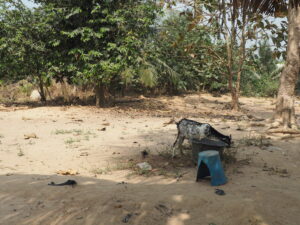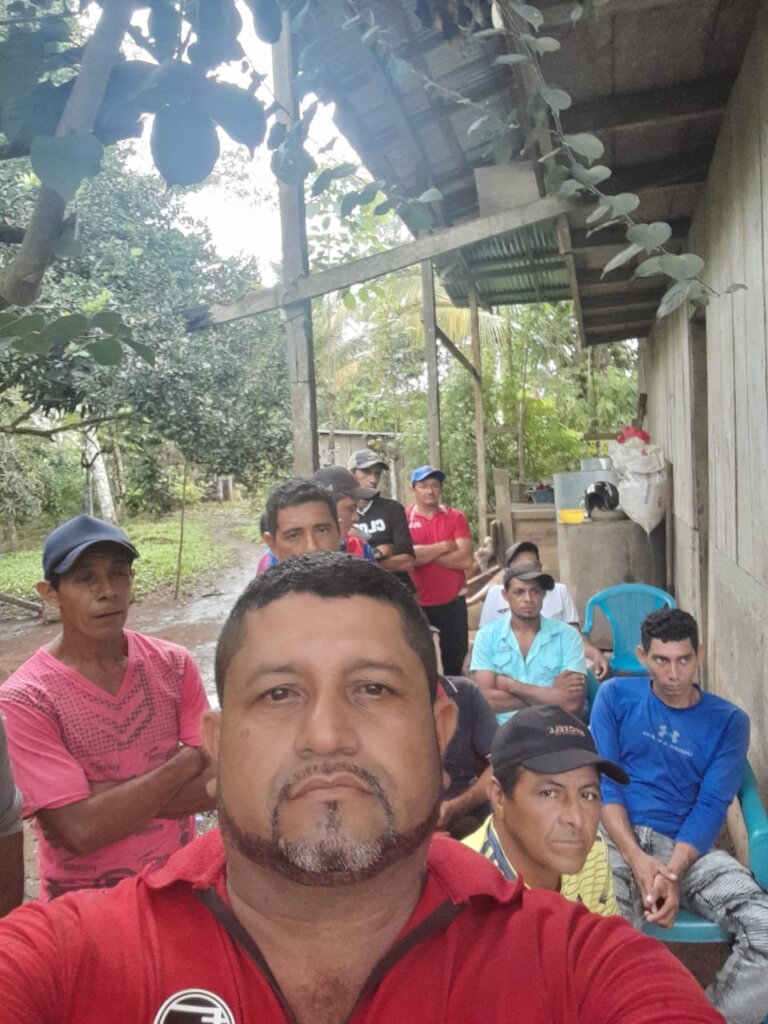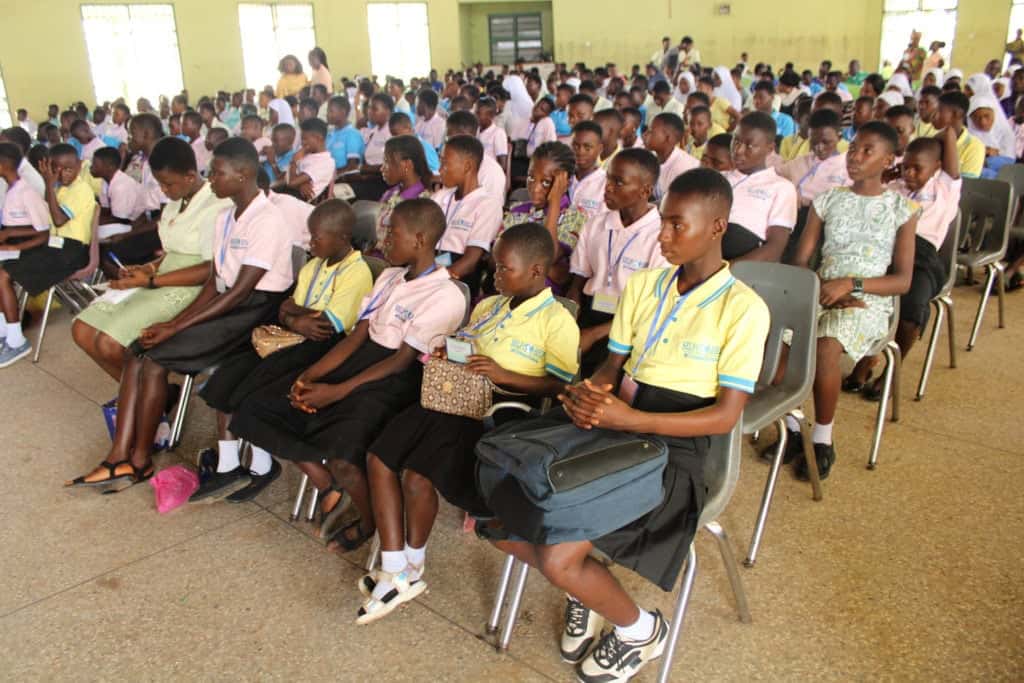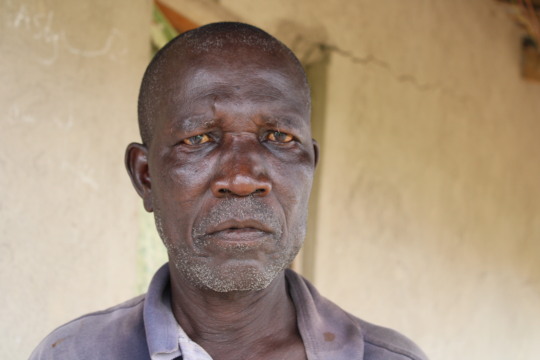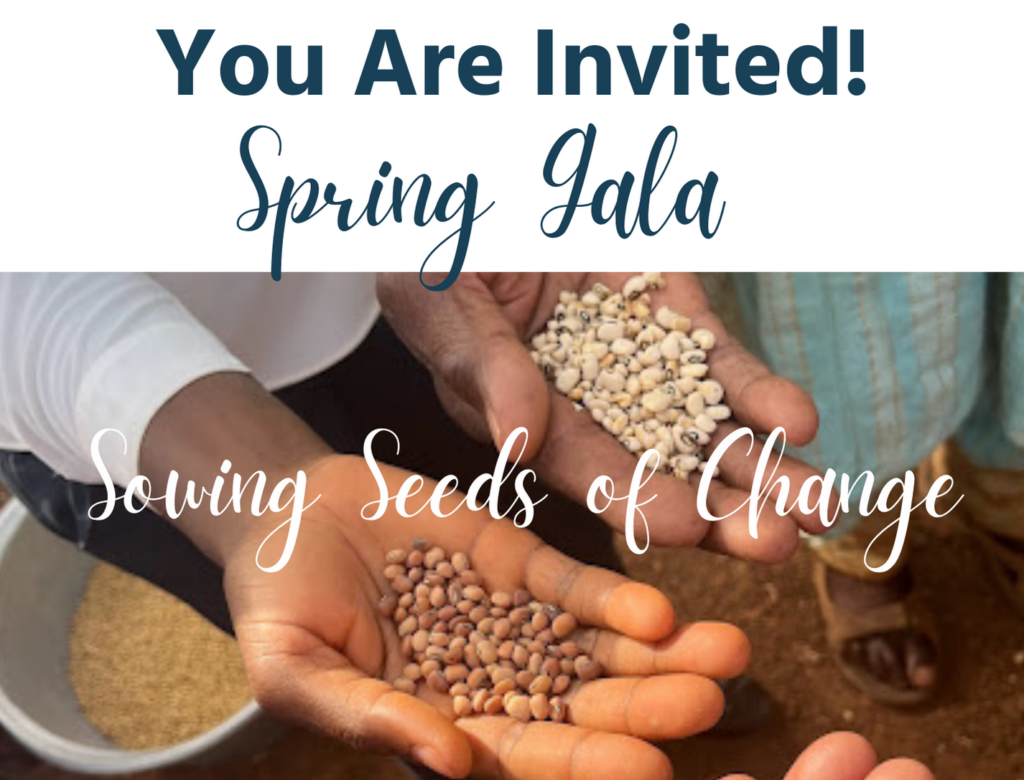A New Chapter for Ama Badu

Ama Badu community member at micro-credit training
We are often asked how we decide which communities to serve. In Ghana, we intentionally focus on rural communities within a 25-mile radius outside of Kumasi, Ghana for logistics and safety. Our team needs to be able to reach the community, offer the training and advising, and get back to the office during daylight hours. Traveling even just 25 miles can take up to 90 minutes by truck.
But beyond the geography, where we serve depends on the community’s desire to partner with us. Most often, we are invited in by either the Ministry of Food and Agriculture (MOFA) or the local community residents themselves. In the case of Ama Badu village, one of the teachers, Ann, told her friend Abigail about poor attendance by pupils at her school. Abigail is the head teacher at Bedaabour Islamic School and recommended contacting Self-Help International because our School Feeding Program helped the Bedaabour Schools greatly increase attendance. Abigail gave Ann the contact information for Self-Help’s program officer, and Ann gave it to the head teacher, who called us and asked for assistance. After seeing the demonstrated commitment by the community, it was clear we would partner well together.
Self-Help began working in Ama Badu on January 14, 2016, after Self-Help’s School Feeding Program and Agricultural Training team received a request for support from the Ama Badu Parent Teacher Association (PTA). The headmaster reported that most of the children from the villages were not coming to school due to hunger and poverty, and sought assistance to initiate a school feeding program to increase daily attendance. Self-Help worked with the PTA to establish a school farm to grow the maize for the school feeding program.

Ama Badu PTA meeting
In the following months the school farm did well, but the parents were reporting poor harvests at the students’ homes. So the head teacher from the school reached out to Self-Help, asking us to introduce the Micro-Credit Program in their community to ensure the mothers had a way of providing meals for the children in the evenings – not just breakfast at school.
On July 29, Self-Help’s Micro-Credit team met with the head teacher, two other teachers, and 16 women about the mission of Self-Help and the aims and objectives of the Micro-Credit Program. The women were mostly farmers and small-scale traders from Ama Badu and surrounding villages whose children attended Ama Badu school. The women were tasked to meet and think about the topics discussed and determine how they would benefit from joining the program.

Women gather for micro-credit training
The following week, the Micro-Credit team returned to offer group formation training for the women of Ama Badu and found that the group had expanded to 22 women. The training covered the importance of group selection and accountability, the importance of having a leader, and the qualities of a good leader. They also discussed the importance of being good neighbors and watching out for one another. The women were given the chance to ask and answer questions and share their views for further discussions.

Women gather for micro-credit training
Three weeks later at the end of August, another training session was held to teach the women how to assess their businesses and determine their profits. They were also taken through the importance of savings and savings mobilizations, and were asked to share their opinions on savings and the impact it could make on their lives.
The women formed themselves into 7 groups, and in October all 22 who completed the training course were capitalized for the first time. Each woman’s loan was GHC 200, which is equivalent to approximately $50 USD. The women began repaying their loans on November 29th and completed loan repayment in April 2017. Those who demonstrated that they could manage the funds were authorized to re-capitalize at a higher loan level, while those who struggled but demonstrated commitment were re-capitalized at the same rate. If any women engaged in willful default, they were removed from the program.
We look forward to continuing to support the women in the months ahead so they can better provide for their children’s health!

